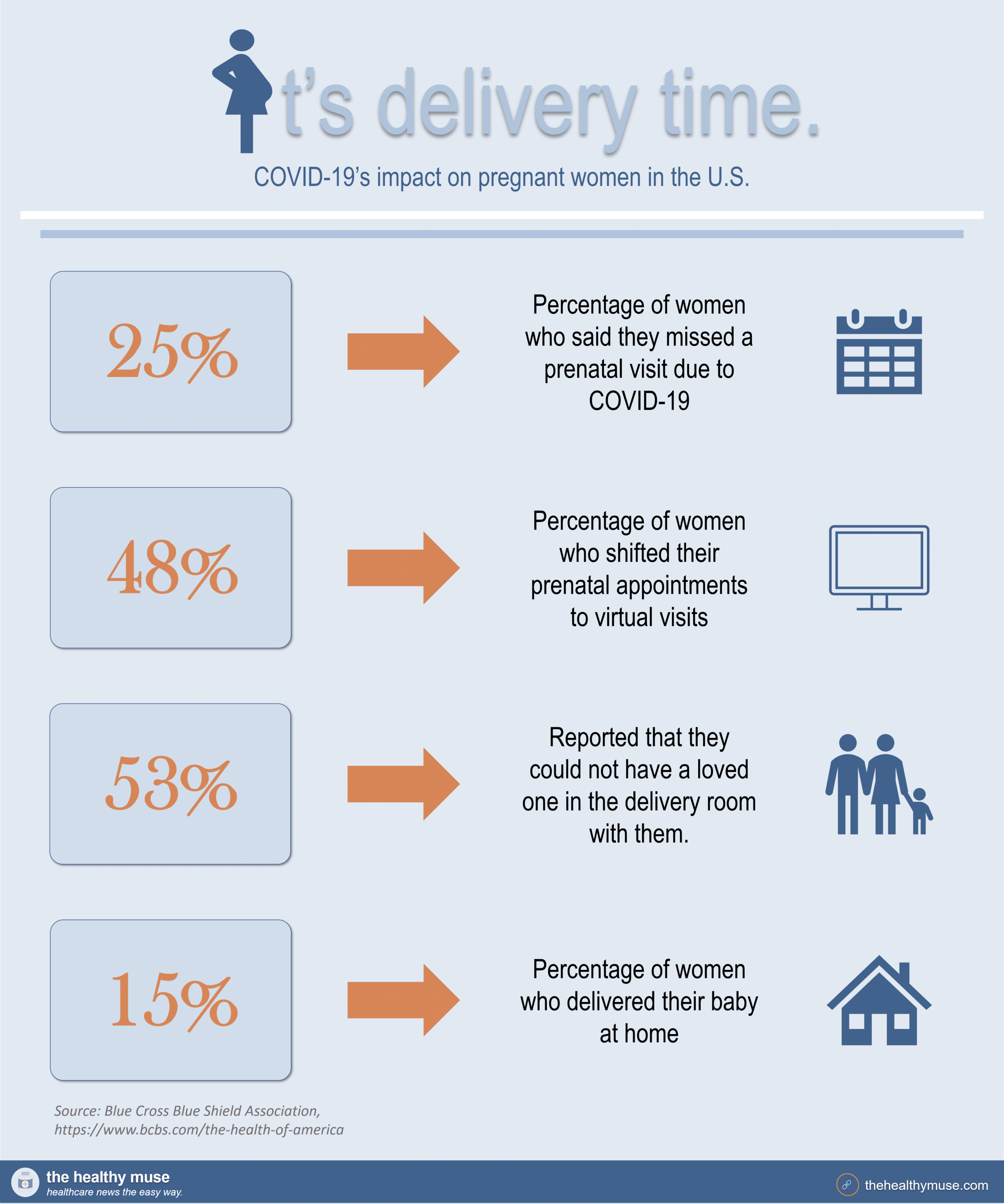How COVID-19 is impacting pregnant women in the U.S.
Some friends at the Blue Cross Blue Shield media department have shared some very insightful data in a recent press release on both trends in pregnancy & childbirth as well as how COVID-19 is impacting pregnant women in the U.S.
Based on that BCBS report (which you can find here), their research team found the following eye-opening trends related to pregnancies during COVID-19:
- 25% of pregnant women said they missed a prenatal visit;
- 48% shifted their prenatal appointments to virtual visits;
- 53% reported that they could not have a loved one in the delivery room; and
- 15% delivered their baby at home.
The BCBS research report is chock full of interesting insights related to pregnancy and childbirth.
- The analysis found that pregnancy and childbirth complications have increased 16.4% and 14.2% respectively – 31.5% overall – as millennial women comprise 85% of all pregnancies in the U.S. and also hold more pre-existing conditions like hypertension that can lead to greater risk.
Resources and help for expecting mothers.
To help offset negative trends in pregnancy and childbirth, BCBS offers plenty of resources to expectant families, including a database of centers that are committed to quality, consistent maternity care.
- Noted as Blue Distinction Centers, these sites of care provide better outcomes for deliveries.
To help expectant mothers access quality and affordable care, payors like Blue Cross Blue Shield are providing support programs along with community-focused initiatives that help ensure the better health of America. Services include the following:
- Embedding health coaches and nutritionists in OBGYN offices to help women manage chronic diseases and lead healthier lives.
- Providing resources for pediatricians to screen new mothers for postpartum depression so they can quickly get the treatment they need.
- Offering expectant mothers with high-risk pregnancies confidential nursing support specific to their individual needs.
We hope this is a resource to you, and a big thank you to the Blue Cross Blue Shield media and data analytics team for finding insightful, actionable conclusions from their claims data.
If you want more insights like these, or if you want to stay on top of the latest healthcare news and trends in a once-weekly e-mail, please consider subscribing to our newsletter below.
